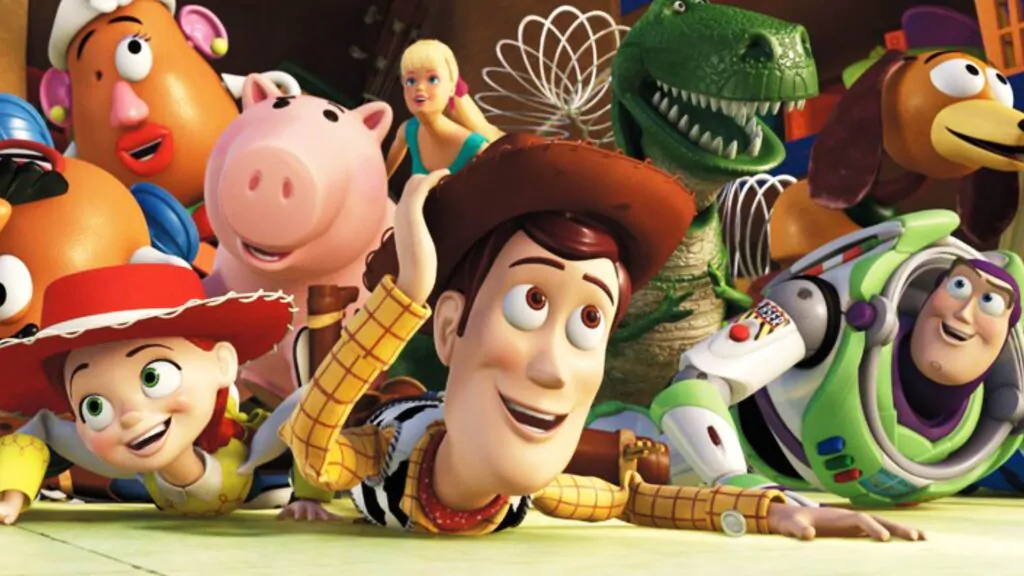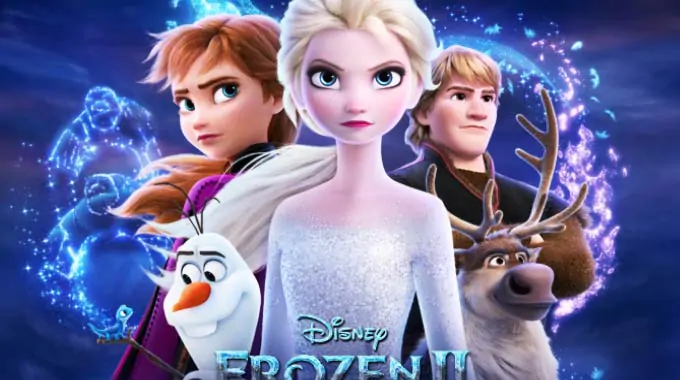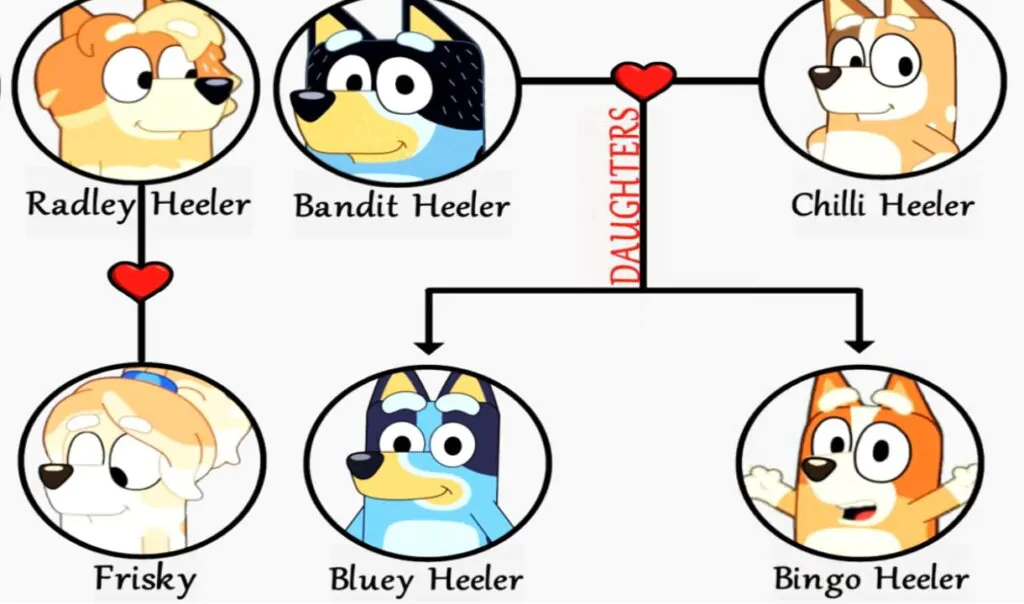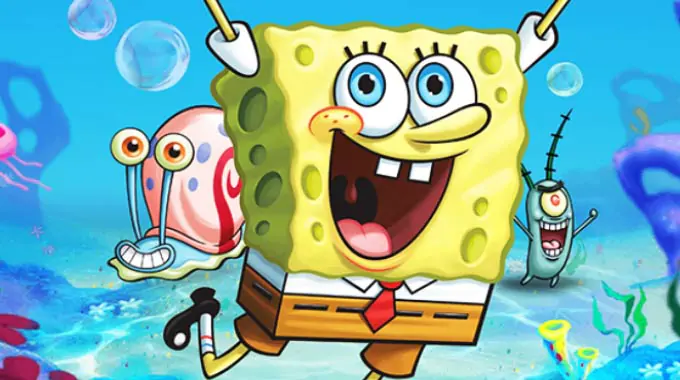In a world where animated television series entertainment for children, “Bluey” Bluey Characters stands as a shining exception. This beloved Australian show has captured the hearts of viewers young and old, not just with its adorable characters and engaging stories, but with the profound life lessons it imparts.
Behind the colorful animation lies a treasure trove of wisdom that transcends age, teaching us essential values and principles through the experiences of Bluey, Bingo, their family, and a host of endearing characters.
“Bluey” is not just a cartoon; it’s a guidebook for navigating the complexities of life with resilience, empathy, and a sense of wonder. In this article, we’ll delve into the invaluable life lessons that can be gleaned from the delightful world of “Bluey” characters.
From the power of imagination to the significance of friendship, from the wisdom of elders to the joys of shared adventures, the lessons these characters offer are both timeless and universal. So, let’s embark on a journey through the colorful and meaningful universe of “Bluey,” where every episode is not just a tale for children but a beacon of wisdom for all ages.
Here is the List of Life Lessons You Can Learn From Bluey Characters
From Bluey:
Creativity: Bluey is always coming up with imaginative games and adventures.
Resilience: She faces challenges head-on and never gives up.
Friendship: Bluey is a great friend who is kind and supportive.
Problem-Solving: She often finds clever solutions to her dilemmas.
From Bingo:
Imagination: Bingo’s imagination is boundless, and she teaches us to dream big.
Curiosity: She’s always asking questions and exploring.
Adaptability: Bingo is open to trying new things.
Emotional Expression: Bingo isn’t afraid to express her feelings.
From Bandit (Dad):
Quality Time: Bandit shows the importance of spending time with your kids.
Patience: He’s patient with Bluey and Bingo as they learn.
Teaching through Play: Bandit teaches life lessons through play.
Supportive Parenting: He supports his kids’ interests and activities.
From Chilli (Mum):
Balance: Chilli manages work and family life effectively.
Empathy: She’s empathetic and understanding towards her children.
Problem-Solving: Chilli often helps the kids solve their problems.
Self-Care: Chilli takes time for herself, emphasizing self-care.
From Grandad:
Wisdom: Grandad shares wisdom from his experiences.
Appreciation for Nature: He teaches the kids about the natural world.
Family Traditions: Grandad introduces family traditions.
Bonding through Stories: He bonds with the kids through storytelling.
From Nana:
Age is Just a Number: Nana proves that age doesn’t limit fun and adventure.
Nurturing Creativity: She encourages Bluey and Bingo’s creativity.
Staying Active: Nana is active and keeps up with the kids.
Teaching Traditions: Nana imparts family traditions and values.
From Coco:
Inclusion: Coco teaches the importance of including everyone in play.
Kindness: She’s a kind and considerate friend.
Problem-Solving Together: Coco and Bluey work together to solve issues.
Diversity: The character of Coco emphasizes diversity and inclusivity.
From Snickers (Rusty’s Dog):
Loyalty: Snickers is a loyal and dependable friend to Rusty.
Unconditional Love: Dogs like Snickers teach us about unconditional love and companionship.
From Rusty (Cousin):
Cousin Bond: Rusty’s presence highlights the special bond between cousins.
Sharing Adventures: He shows how cousins can share and create memorable adventures together.
From Muffin (Neighbor):
Neighborly Kindness: Muffin represents the importance of being kind to your neighbors.
Community Spirit: She participates in community activities, promoting a sense of belonging.
From Stripe (Dad’s Friend):
Friendship Beyond Age: Stripe’s friendship with Bandit demonstrates that age shouldn’t limit friendships.
Supportive Friend: He’s always there for Bandit when needed.
From Indy (School Friend):
School Friendships: Indy teaches the dynamics of school friendships.
Inclusivity: She helps demonstrate the importance of including everyone in play.
From Judo (Bluey’s Toy):
Imagination: Judo comes to life in Bluey’s imagination, highlighting the power of creativity.
Resourcefulness: Judo often becomes a tool for problem-solving in Bluey’s games.
From Bingo’s Stuffy (Bingo’s Stuffed Toy):
Comfort and Security: Bingo’s Stuffy provides comfort and security during challenging times.
Attachment: It emphasizes the emotional attachment we can have to objects.
From Mackenzie (School Friend):
School Friendships: Mackenzie showcases the importance of making friends at school.
Cooperation: She often cooperates with Bluey and others to achieve common goals.
From Honey (Mum’s Friend):
Adult Friendships: Honey represents the significance of adult friendships.
Shared Interests: She shares hobbies and interests with Chilli, promoting bonding.
From Bingo’s Bob Bilby (Stuffed Toy):
Comfort and Imagination: Bob Bilby is a source of comfort for Bingo and plays a role in her imaginative adventures.
Friendship and Loyalty: Bingo’s attachment to Bob Bilby emphasizes the loyalty and connection children can have with their toys.
“Bluey” is a popular Australian children’s animated television series that not only entertains kids but also imparts valuable life lessons. Here life lessons you can learn from “Bluey”:
The Importance of Play: Play is a fundamental part of childhood and helps in learning important skills.
Imagination is Powerful: Use your imagination to create new worlds and solve problems.
Quality Family Time: Spend quality time with your family; it’s essential for bonding.
Resilience: It’s okay to face setbacks; learn to bounce back from them.
Friendship: Treat your friends with kindness and respect.
Teamwork: Working together can make tasks more manageable and enjoyable.
Problem-Solving: Encourage children to think critically and solve problems on their own.
Creativity: Foster creativity and encourage children to express themselves.
Respect for Nature: Teach kids to appreciate and respect the environment.
Independence: Allow children to make choices and develop independence gradually.
Patience: Learning takes time, and patience is key to success.
Communication: Effective communication is vital for resolving conflicts.
Gratitude: Be thankful for what you have and the people in your life.
Sharing: Learning to share with others is an important social skill.
Empathy: Understand and consider other people’s feelings.
Acceptance: Embrace diversity and be open to different perspectives.
Responsibility: Teach children to take responsibility for their actions.
Curiosity: Encourage kids to ask questions and explore the world around them.
Honesty: Always be truthful and honest with others.
Kindness: Small acts of kindness can make a big difference.
Adaptability: Life is full of changes; learn to adapt and grow.
Self-Confidence: Believe in yourself and your abilities.
Self-Care: Taking care of your physical and mental well-being is important.
Appreciating the Little Things: Find joy in everyday moments.
Mistakes are Learning Opportunities: Don’t be afraid to make mistakes; they are opportunities for growth.
Time Management: Learn to prioritize and manage your time effectively.
Listening Skills: Active listening is crucial for understanding others.
Perseverance: Keep trying, even when things get tough.
Positive Attitude: A positive outlook can help you overcome challenges.
Love and Support: Family and friends provide a strong foundation of love and support.



















